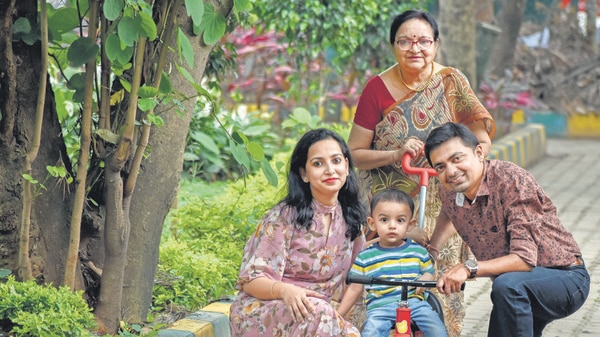
Ankit Khandelwal and his wife Sonali, both 34, wanted to get their financial life on track for a very long time but didn’t know whom to consult or how to go about it. About five months ago, they met Shweta Jain and Nithin Sasikumar, who are the co-founders of Investography, a Bengaluru-based financial planning firm, thanks to a financial literacy workshop that was held at Ankit’s office. “Earlier our investment planning was not structured and we were not sure about where we must invest our money,” said Ankit, a finance professional.
One misconception which the couple had was that you need a large amount of money to start investing but Jain explained to them why that wasn’t true. “Middle-aged individuals’ investments should be targeted towards their goals, growth for the long term and liquidity and safety in the short term,” said Jain.
Sonali and Ankit were initially hesitant about exploring investment options other than Employees’ Provident Fund (EPF) and real estate. Ankit said their investments were not planned through and the little that was invested was done only to get some tax benefits.
Once they started working with a planner, they figured out how investment options such as mutual funds could help their money grow better. Getting the couple to start saving was not the real challenge but increasing savings to match their requirements was hard. However, five months into the financial plan, they’re now saving about 25% of their total income. What most of us don’t realise is that one of the biggest leaks is the money we spend on shopping. “We had to help them get things in order. While the couple did mention what they saved, the numbers were not matching up to what they should have actually saved,” said Jain. the mismatch was because of the unaccounted expenses.
Sonali and Ankit have their long-, medium- and short-term goals chalked out. Their priority is to ensure that their one-and a-half-year-old son Tiyansh gets the best education and they’ve already started putting aside money to meet this goal. They also wish to buy a house of their own in the next five years which is their medium-term goal. Planning for retirement and having a contingency fund are other goals. The couple has started regular investment in equities to meet their long-term goals. For other goals, they have a significant debt exposure.
“We should have started earlier and planned well. But now we are carefully selecting our investment avenues based on our needs. Better late than never,” said Sonali, a marketing and sales professional.
Jain said most people tend to take decisions such as buying a house or going on vacations without really considering what impact it could have on their other goals. “It is worthwhile to figure out what is important to you and the implications your money decisions could have on your future goals,” said the financial planner.
Their son and Ankit’s parents are financially dependant on the couple. In terms of money lessons, the couple said they’ve learnt a lot. Starting early was their biggest takeaway and this is one thing they’d like to pass on to their son as well. “Another thing I learnt was that it doesn’t matter whether you start with a small amount or a big amount. Saving in whatever quantity is okay and investing the same will only help your money grow,” said Ankit.
Having a financial plan is very important. Jain said it is the foundation and if you don’t have a foundation, how successful and tall a building can you build? Most people end up spending a lot in their early years and regret it only much later. “Putting a plan in place and saving for the goals gives a person focus and clarity which is important. A financial plan is like Google Maps, it shows you various routes to get to your destination—you can choose which one serves you the best,” said Jain.
[“source=livemint”]

